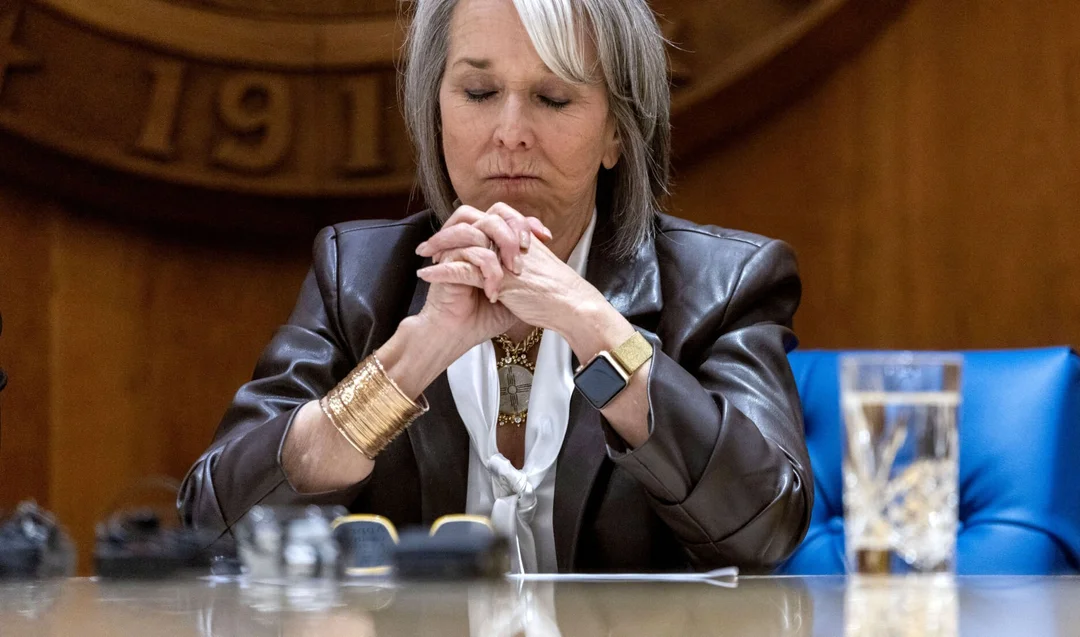
New Mexico Governor Lujan Grisham Delivers Sweeping Vetoes And Scathing Rebuke Of State Lawmakers
In a dramatic culmination of New Mexico's 2024 legislative session, Governor Michelle Lujan Grisham wielded her veto pen to reject a wide array of bills, expressing deep dissatisfaction with lawmakers over their approach to critical issues, most notably public safety and fiscal policy. The move, which included the veto of a sweeping tax package, has sparked renewed debate about the direction of the state and the tense relationship between the executive branch and the legislature.
On Friday, the final day for executive decisions on this year’s legislation, Lujan Grisham vetoed 16 bills and signed three major ones with selective line-item vetoes. Her sharp public statements targeted lawmakers for what she described as a failure to deliver meaningful progress on urgent concerns, asserting, “These appropriations bills represent significant investments in New Mexico’s future, from education and healthcare to critical infrastructure...The targeted line-item vetoes were necessary to maintain fiscal responsibility while ensuring we fund our highest-priority projects.”
The most consequential of her vetoes was HB 14, an omnibus tax bill crafted in the intense final hours of the session. While Lujan Grisham noted support for certain components — such as a liquor excise tax hike, tax reductions for doctors, and relief measures for low and middle-income families — she dismissed the overall bill as a product of last-minute horse-trading that failed to provide timely or meaningful benefits, declaring that “New Mexicans deserve thoughtful, forward-looking policy—not last-minute dealmaking that delays relief, ignores economic opportunity, and undermines fiscal responsibility.” The majority of provisions, she emphasized, would not have taken effect for two years, prompting her to urge lawmakers to produce better-crafted solutions in future sessions.
Lujan Grisham also rebuked the legislature’s cautious approach to fiscal reserves—30% in the new budget amid $3 billion in one-time state funds—calling it “paralysis, not prudence.” The legislative struggle over competing House and Senate visions for the tax package, including a late compromise adding credits for foster parents and the Earned Income Tax Credit for low-income residents, ultimately proved moot in the face of her veto.
Beyond taxes, the governor rejected various high-profile and symbolic bills, from designating the tortilla as the state bread to creating special license plates, lamenting that “the question should not be how many more symbols we can collect—but whether we are meeting the moment with the gravity it demands… We need a Legislature that rises to the occasion and focuses on the work that truly matters to the people of New Mexico.” Her frustration also extended to the failure to pass new regulations on synthetic cannabinoids and measures to spur housing development, mere days after a mass shooting in Las Cruces.
Even efforts at greater government transparency and modernization met resistance. Lujan Grisham vetoed a lobbying accountability bill – HB 143 – citing onerous and vague requirements. Rep. Sarah Silva, co-sponsor, noted the irony: “It’s ironic that HB143 would have given us information about who lobbied the governor to veto this bill – and without it, we have no way to know…her veto demonstrates the need for the very legislation she killed today.” Environmental and wildfire management proposals, as well as plans for a new state park, also met with gubernatorial disapproval, highlighting concerns over lack of funding or duplication with existing efforts.
While legislators retain the possibility of overriding vetoes with supermajority votes, such moves are almost unprecedented in New Mexico politics. As the dust settles, questions loom large: Will the standoff spur a more collaborative, results-driven session next year, or deepen divisions within state government?
What are your thoughts on the governor’s decisive actions and her critique of the legislature? Do these vetoes align with the state’s priorities—or do they miss the mark? Share your views and join the conversation below.